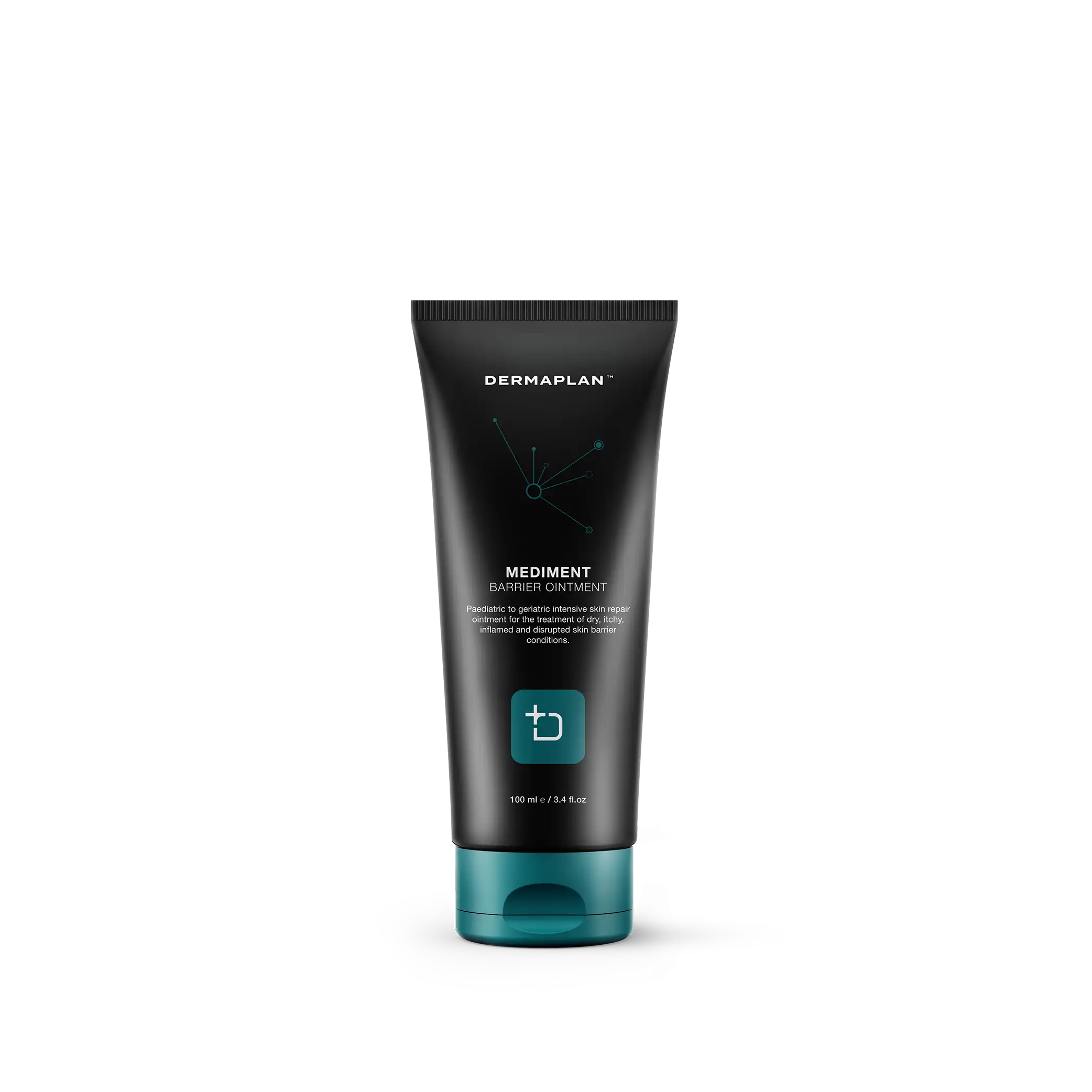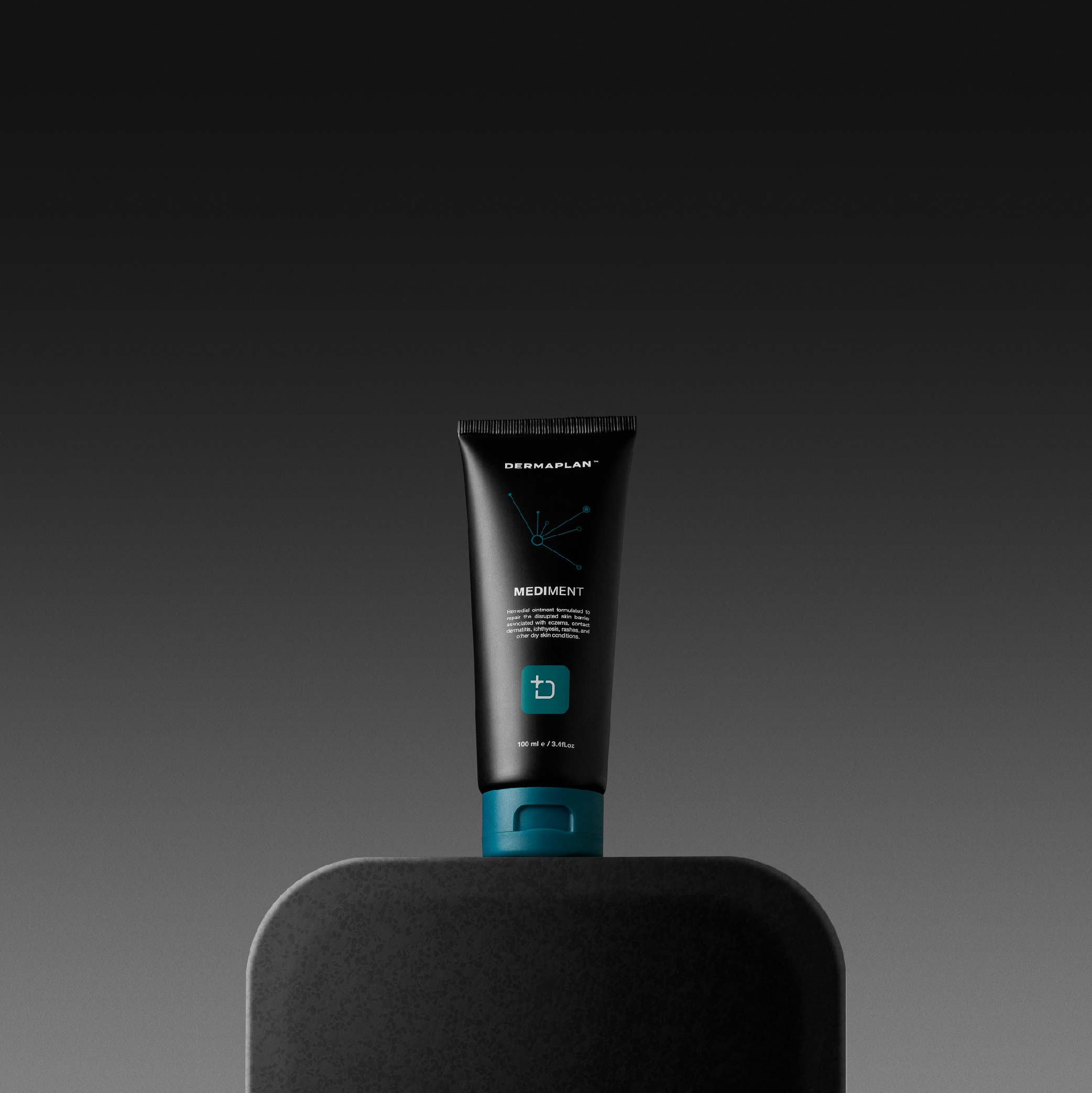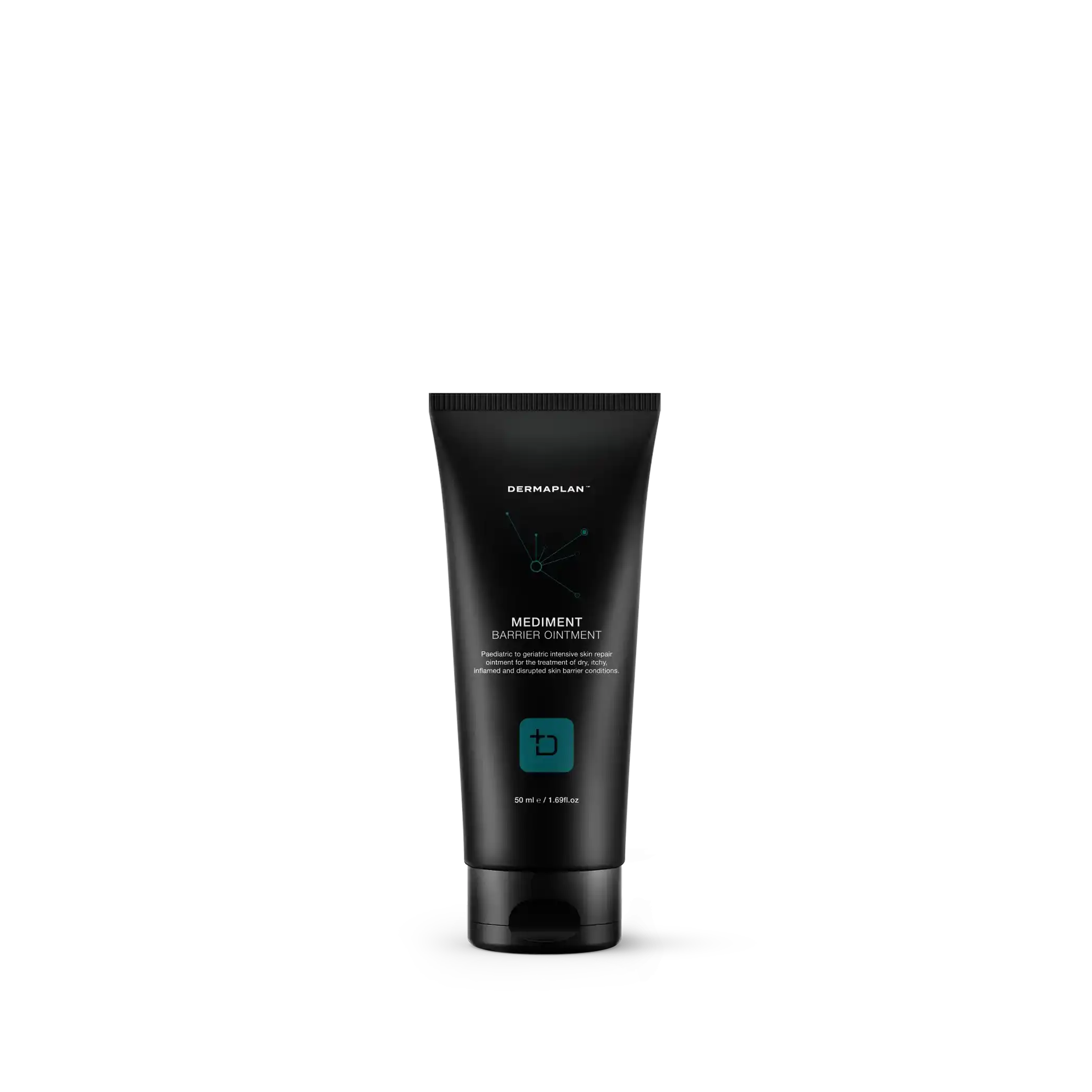






Barrier Ointment
Pay interest-free installments from R 132.00 with various payment gateways selected at checkout.




Choose options
White soft paraffin, jojoba oil, cetomacrogol, liquid paraffin, butyrospermum parkii (shea) butter, jojoba alcohol, potassium jojobate, simmondsia chinensis butter, propanediol, squalane.
Mediment
product benefits
Repair & Strengthen Barrier
Creates a Protective Barrier
Intense Moisturization
Soothe Irritated Skin
Smooth Skin Texture
Control moisture balance
Indications for Mediment
Dermatitis / Eczema
Disrupted Skin Barrier
Dry Skin
Chapped and Cracked Skin
Post-Procedure Recovery
Wound Repair
mediment
mode of action
Testimonials


Not sure which products you need?
Find your regimen
Assessment
Submit your free Dermal Diagnosis™ Assessment
Treatment Plan
Receive your Free Personal Profile and Treatment Plan
Confident Skin
Start your Simple and Effective journey to Confident Skin!


















